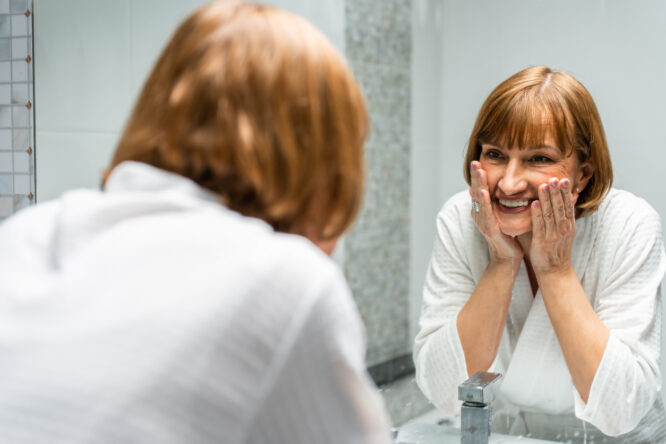For years, we were told to ring the surgery, sit in a waiting room full of coughs and awkward eye contact, and eventually see a GP in person—that was just how things worked.

But now, the rules seem to have changed. You ring, and you’re told to fill in a form online. You show up, and you’re told it’s a phone consultation. When you do manage to get a slot, it feels like winning the lottery.
It’s easy to assume GPs are just trying to make life harder, or that they’re “too busy” for you. However, the truth is more complicated, and honestly, it’s not always personal. Here’s what’s really going on behind the scenes, and why many GPs would rather deal with you remotely these days.
The system is completely overwhelmed.

GPs aren’t being dramatic when they say they’re under pressure—the numbers back it up. Surgeries are dealing with more patients than ever, with more complex needs, and not enough time or staff to manage it. Many are working 11–12 hour days just trying to stay afloat. Remote appointments help them get through more people in less time, which makes the workload just a tiny bit more bearable. It’s not ideal, but it’s often the only way to stay on top of things.
Most problems don’t actually need a physical exam.

It might sound strange, but loads of things can be handled just fine over the phone or via a secure online form. Skin issues? Send a photo. Medication queries? Done in two minutes. Mental health check-in? Doesn’t always need face-to-face time. If you don’t need to be prodded or poked, your GP might reasonably decide there’s no need for you to come in, especially when there are people in the queue who do need a physical examination.
Patients aren’t always honest about what they want to discuss.

Plenty of people book a routine blood pressure check and then, once they’re in the room, pull out a long list of unrelated concerns, some of which are complex or serious. That sort of last-minute ambush makes scheduling a nightmare. When it’s a phone consultation, it’s easier for the GP to set boundaries and stick to the time allocated. It’s not about being cold; it’s about keeping things manageable.
There’s not enough room in the waiting room anymore.

With infection control still on everyone’s radar, especially for older or immunocompromised patients, GPs can’t cram 20 people into the waiting room like before. Some practices still limit numbers to keep everyone safer. Remote appointments are one way to keep things moving without creating a crowd.
Triage systems are the new normal.

The receptionist isn’t just being nosey when they ask what your appointment’s about; they’re trying to follow a triage system. This means prioritising the most urgent cases and deciding who genuinely needs to be seen in person. It’s not perfect, and sometimes people slip through the cracks, but it helps the surgery avoid wasting a slot on something minor when there’s a kid with breathing problems waiting to be seen.
Some patients are honestly just rude.

Let’s be blunt. Some people take out all their frustrations on NHS staff. Abuse has gone up sharply in recent years, and GPs and receptionists are bearing the brunt of it. Understandably, some doctors don’t want to open the door to someone who’s been aggressive or dismissive in the past. A phone call or an online message keeps a bit of distance and helps keep things civil.
There’s barely any time to catch up between patients.

When every appointment is face-to-face, there’s often zero breathing space between patients. That means no chance to update notes, chase blood results, or even nip to the loo. With a phone consultation, there’s usually more flexibility, and it’s easier to keep things running on time. It’s not about laziness; it’s about practical survival.
Some people come in when they don’t need to.

It’s not uncommon for people to insist on seeing a GP about things like mild colds, old insect bites, or just wanting “a second opinion” on something they already Googled. These sorts of cases clog up the system and take time away from people with serious conditions. By making it harder to book a face-to-face slot, surgeries can gently nudge people to be a bit more realistic about what warrants an in-person visit.
Remote working is easier for part-time GPs.

A growing number of GPs work part-time or split their time across several roles, such as teaching or hospital work. Remote consultations allow them to log in from wherever they are and help patients without needing to physically be in the building. It’s a smart use of limited resources, and in many cases, the patient wouldn’t even notice the difference.
Covid changed the way surgeries operate.

The pandemic forced every practice to rapidly adapt—online forms, phone calls, video calls, all of it. And while some of those changes were temporary, a lot of them stuck because they worked. In many cases, remote triage helped reduce missed appointments and made life easier for people who couldn’t easily travel or get time off work. GPs are simply continuing with the systems that proved to be more efficient.
The government keeps pushing for “digital first.”

Like it or not, the people running the show have made it clear they want the NHS to lean more heavily on tech. That means online forms, symptom checkers, and app-based booking systems. GPs don’t always get a say in it—they’re just following the policy. It’s not personal. And in some areas, they simply don’t have the staff to run it any other way.
Burnout is very, very real.

Many GPs are at breaking point. They’re retiring early, cutting their hours, or quitting entirely. Those who remain are stretched so thin it’s barely sustainable. Remote consultations are often the only way they can realistically get through the day without falling apart. Choosing phone appointments isn’t about cutting corners. It’s often the only option that keeps them from walking away entirely.
So what can you actually do about it?

If you’re struggling to get a face-to-face appointment, don’t assume your surgery doesn’t care. They probably do want to help—they’re just dealing with a ridiculous set of circumstances behind the scenes. If you genuinely think your concern needs an in-person assessment, explain why. Be clear, be polite, and be honest about your symptoms. That gives the receptionist or triage nurse the best chance to flag your case properly.
And if you don’t feel listened to or things keep getting brushed off? Ask to speak to the practice manager or consider switching surgeries. It’s not a betrayal; it’s about getting the care you need.
At the end of the day, your GP is still a human being trying to do their job in a system that’s creaking under the weight of demand. Face-to-face isn’t dead; it’s just become a bit rarer, and sometimes harder to get to. But it’s still there when it really matters.




